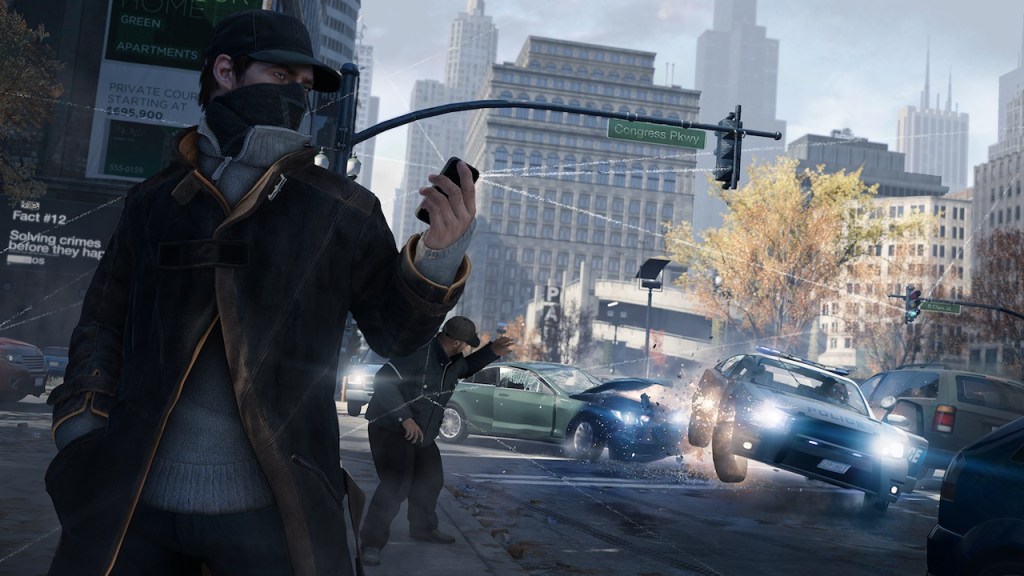A digital world, full of digital people, with digital lives.
Watch Dogs wastes no time in going meta. In the Sears Tower plaza in downtown Chicago, protagonist Aiden Pearce whips out his cell phone and activates an augmented reality game where he sees purple aliens attack the citizens around him. Green pixelated hearts count how…











